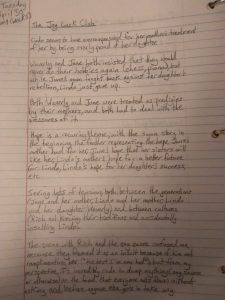- Introduction
- Brief history of superheroes
- Lawrence, John Shelton, and Robert Jewett. The Myth of the American Superhero. W.B. Eerdmans, 2002.
- the original superhero archetype as conceived through Westerns, how it relates to American culture
- Modern superheroes and superhero culture, Marvel vs. DC, etc.
- Lawrence, John Shelton, and Robert Jewett. The Myth of the American Superhero. W.B. Eerdmans, 2002.
- Examination of how superheroes are presented in media
- Brownie, Barbara, and Danny Graydon. The Superhero Costume: Identity and Disguise in Fact and Fiction. Bloomsbury Academic, An Imprint of Bloomsbury Publishing Plc, 2016.
- How different identities are treated, levels of “realism”, white bias and “Everyman” status, etc.
- Superheroes as military propaganda (?)
- Brownie, Barbara, and Danny Graydon. The Superhero Costume: Identity and Disguise in Fact and Fiction. Bloomsbury Academic, An Imprint of Bloomsbury Publishing Plc, 2016.
TagWeek 5
Actor Ryan Potter of Big Hero 6 Fame Thrills Students at UC Riverside
First of all, I had no idea who the guy who played Hiro in Big Hero 6 was before finding this article, let alone that he was Japanese-and-Jewish American, so that’s really neat!
I like that he talks about representation and diversity, because it is so important for self-esteem and mental health to see yourself represented when you’re a kid. At first I was confused when he said that he was hesitant to audition for a role because Nickelodeon wasn’t very diverse, but then I thought about the shows I watched on that channel growing up and realized that, yeah, it was mostly white people. Any other ethnicities were either sidekicks, minor characters, or practically nonexistent. And when I was a kid, I didn’t pay any attention to that kind of thing, let alone whether those characters were played by the same ethnicity actors or not. It’s only when I got older that I realized how important it was.
I did notice, however, that the roles he had taken up until playing Beast Boy seem to fit into stereotypes about Japanese people; first he plays a ninja who’s good at martial arts, then he plays a super-smart prodigy kid who builds robots. I probably wouldn’t say that Hiro is a completely stereotypical character, but there’s definitely elements of those stereotypes involved in his characterization. Regardless, this feels like another example of Asian people being locked into playing certain types of characters, but maybe for him playing Beast Boy will break him out of that and prompt writers to give him different types of characters? I haven’t seen the Titans series that he’s in, so I don’t know how the writers treat Beast Boy in it, but hopefully they didn’t add racist stereotypes to his character just because the actor is Asian.
Railroad Standard Time
- “Words I’d never heard before set me at play in familiar scenes new to me, and ancient.” (pg 1) I thought this was a very powerful way to describe the experience of listening to his mother’s Chinese. Even though I’ve never had this kind of experience, the language used helps me understand what it might feel like to be confronted with something that you know is a large part of your family’s history and culture and be unable to understand it the way they do.
- “So this dance and groggy mumbling about the watch being no good, in strange English, like an Indian medicine man in a movie.” (pg 2) Why did she start acting funny when he asked her what her father’s name was? And what did that have to do with the watch being “no good”? She said something about her father’s name being “one of those Chinese names…” (pg 2), so was she thinking that the watch didn’t have value because her father was Chinese or something like that?
© 2025 Sarah's A-POP Blog
Theme by Anders Norén — Up ↑
